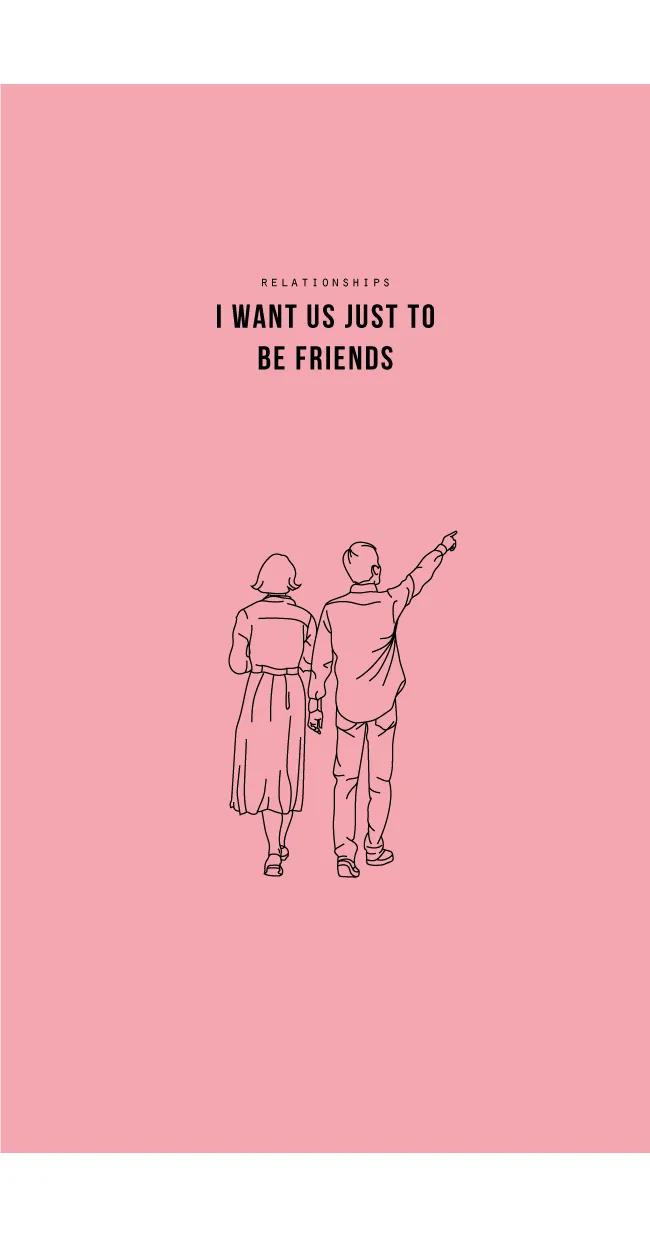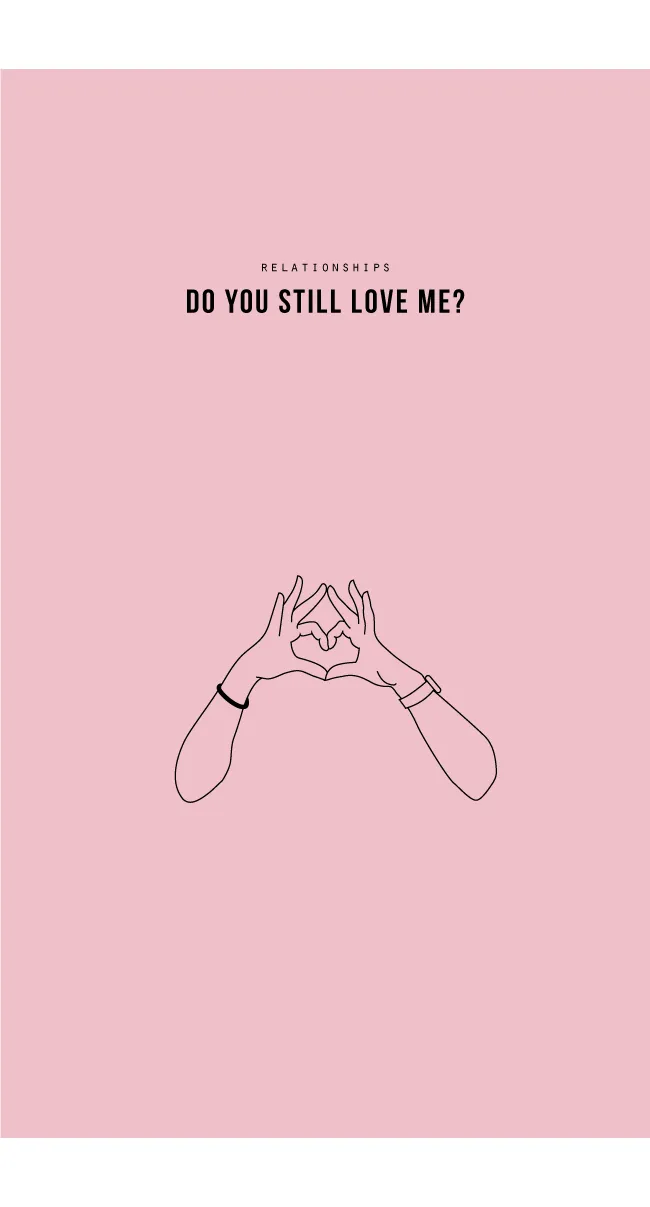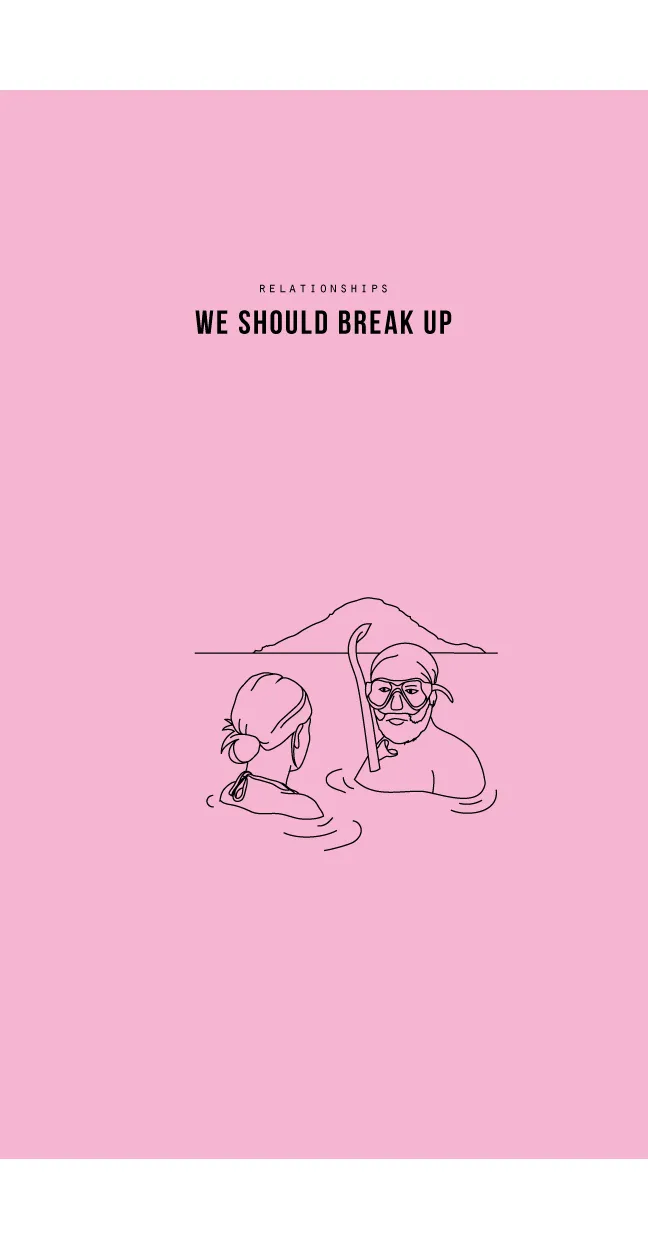![]()
I WANT US JUST TO BE FRIENDS
It is never easy to be rejected but it’s arguably a great deal worse to have to reject; the pains of unrequited love are as nothing next to the agonies of having to inflict a dismissal. Someone is willing to offer you everything; concretely, their body, but more metaphysically, their soul, and your answer is in essence a plain: no thank you. But that isn’t to say that there aren’t far better and worse ways to get the message across. Here’s how an ideal note might go:
→ Forgive me for bringing this up…
It’s profoundly tempting to say nothing, to sidestep the interest while the pursuer convinces themselves that you perhaps haven’t yet fully noticed or are just profoundly ‘shy’. But such ambiguity merely prolongs the torture. You have the agency, maturity and responsibility to bring this to an end.
→ I so love spending time with you...
The overwhelming priority is to help the rejected candidate preserve their dignity. They aren’t a bad or shameful person, they have a huge range of qualities (which is why this is so hard); it’s just that sex won’t be possible. Be unembarrassed, for embarrassment is catching; if you’re not ashamed, they’ll have a chance not to be so either. You didn’t will your lack of desire, any more than you willed your sexual orientation.
→ … but I feel if we go further...
Frame the decision as somehow mutual. It isn’t simply they who want it and you who conclusively shudders. We are looking at this together. Both of you are in theory rather tempted to go forward, you just happen to have noticed a problem from where you’re standing.
→ … if we let things develop, you won’t get the best out of me.
It isn’t, and can’t be, their fault. It’s a basic act of kindness to assume responsibility. But, so you must suggest, this has nothing to do with a lack of attraction; it arises from a sincere wish to protect them from your many trickier sides.
→ If this became something else, I’d hate to damage what we have.
The traditional assumption is that going out with someone gives us access to their best selves: their truest, most authentic and most kindly aspects. But this is plainly false. Most relationships are a calamity of ugliness; we are almost always far better friends than we are lovers. Friendship isn’t some kind of consolation prize, it’s the truly valuable state besides which the average relationship looks like the squalid alternative.
→ I need your advice, your support and your unique way of looking at the world. Might you be free this Monday to see a show and maybe pick up some supper?
Make the ongoing offer of friendship concrete. You aren’t ‘rejecting’ them as a whole; you’re offering them something far more significant than your sexuality: a chance to enjoy the best sides of you, right now. Friendship is the real gift and privilege.
![]()
DO YOU STILL LOVE ME?
Our societies have a lot of patience for people who are in anguish at the start of a relationship because they need to know if they are loved, but a lot less time for those who – deep into established relationships – have an equally powerful longing to know if they are still loved. A nagging hunger for reassurance can easily come across as ‘needy’, ‘cloying’ or ‘desperate’. But that doesn’t mean it’s illegitimate; it’s a wholly normal, even healthy impulse to seek to know where one stands. One just has to find an artful and effective way of doing so.
→ I know this might sound annoying – and no doubt even a touch desperate...
We’ll never be overly annoying so long as we’re aware we might be so. Giving a mature nod in the direction of the danger suggests that we know the potential for extremes and are determined to avoid them. The truly deranged have no suspicion that they might be so; they just wildly insist on their normalcy.
→ But I need reassurance – and I’m not getting it.
Too often, when denied a sense of connection, we go down one of two paths. Either we say nothing, avoiding a confrontation out of a sense that we don’t deserve good treatment (but then get bitter and go cold or have an affair). Or else we explode into completely uncontained rage, accusing the partner of all manner of extreme things, which makes it painfully easy for us to be ignored and labelled crazy. The trick is to come across as vulnerable and, at the same time, strong.
→ For me, a sound relationship is about a feeling of connection – and regular communication. I’m tough in every area in my life; I don’t want to be in this one.
A hint should be delivered, somewhere in the message, that while we very much want to stay, we aren’t ready to do so at any cost; offering someone unconditional love sounds romantic, but it’s also a sure route to getting trampled on.
→ This might seem like a small thing to bring up, but you need to know that when you …. [insert issue, large or substantial: flirted at dinner/were absent for two days without saying where you were going/were sullen throughout the meal/abandoned your towel on the floor/didn’t take my hand in bed], it left me sad and a little angry.
We should never be humiliated into feeling that the things that make us unhappy in love are ‘too small’ to worry about: if they hurt us, they’re legitimate. We need to build up our sense that we have every right to speak, which is what will ensure that we can do so with composure.
→ I love you a lot – but I need to know that we want and deep down feel the same things.
We often don’t ask if we’re wanted from a bare fear of what we might hear in return. But if a relationship is truly so fragile, we are better off not being in it in the first place.
→ Of course, I understand that we have different styles of relating; I don’t want to put you under undue pressure.
It pays to signal our awareness that love can manifest itself in different ways; it is theoretically compatible with silence, or more modest sexual interest or a steady longing to hang out with friends or play golf. But these may also be signs of a distance that isn’t in the end our style and that we have no innate requirement to endure.
→ I’m rather needy – and need a few more signs of life from your end that you care.
It’s useful to win back a pejorative term, make it one’s own and triumph over its unfair negative associations. The really fragile ones among us aren’t those who can articulate their needs for reassurance, it’s those who can’t bear the risks of sharing their hunger to be close.
![]()
WE SHOULD BREAK UP
Normally, the message has been clear in our heads for a very long time. The difficulty isn’t so much finding the words; it’s coming to terms with the notion that one has the right to say them.
But of course one does – not primarily for our own sake but, far more importantly, for theirs.
→ This is the worst time, I know. But in reality, there simply isn’t ever going to be a decent time to say this.
The temptation is to wait until a ‘good’ moment comes along: when they’ve settled into their new job, after their birthday, when it’s the start of the holidays or when they seem more reliably dissatisfied and annoyed with us. But in reality, whatever date we pick, there never will be a remotely appropriate time. This is going to hurt horribly at any point. One might as well ruin the holiday in Thailand or the brother’s birthday in the name of a greater, more sustainable liberation.
→ This relationship simply isn’t working for me any more.
The greatest cruelty is not to deliver the blow, but to remain in a relationship one has ceased to believe in without saying anything. The moment one truly realises one’s feelings, the primordial duty is to get out of the way – and allow them to start afresh. Wasting someone’s life is the real crime.
→ There could be so much to say, but there isn’t any point right now. In the kindest way, this is what it is.
The impulse can be to start to go into some of the reasons why. The partner themselves may be particularly intent on taking the conversation in a consultative direction, in the hope of being able to unpick your logic and perhaps reverse your conclusions. But you risk thereby ending up in a petty dispute over a long-standing point of friction or facing a desperate plea – and so having to be blunter than you would wish. If they could understand, properly understand, the real issues, ...



